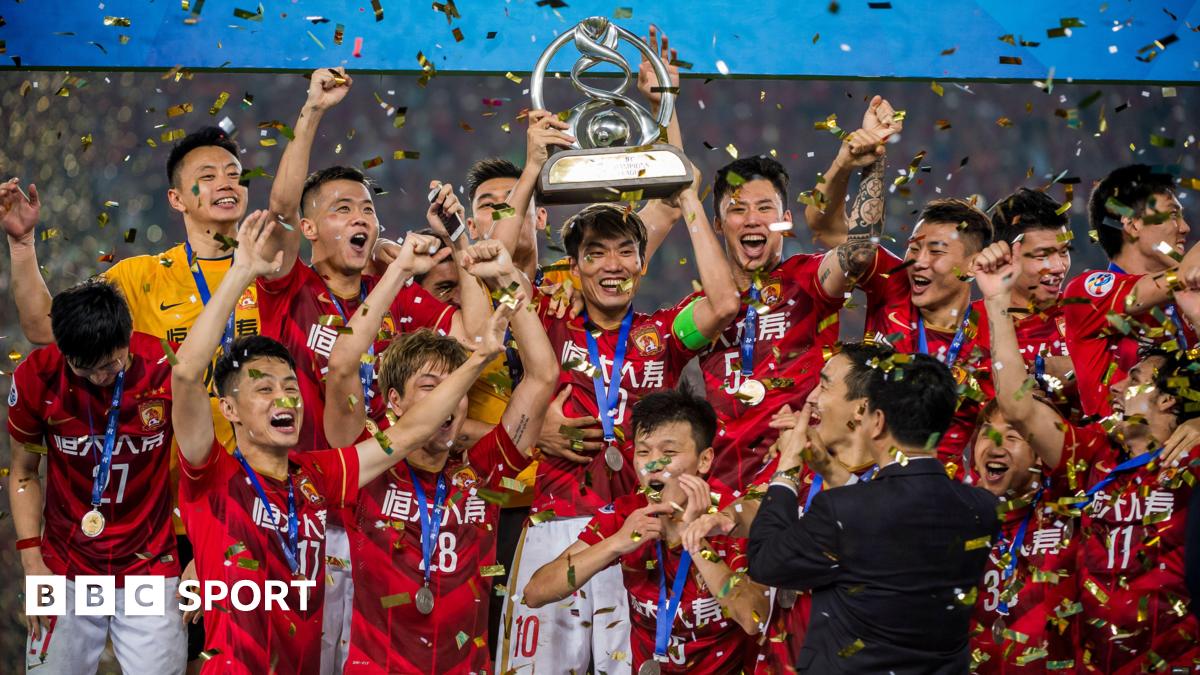Guangzhou's meteoric rise began when property developer China Evergrande bought the club in 2010 when it was playing in the Chinese Second Division League.
The new ownership group has renamed the club Guangzhou Evergrande and invested heavily on and off the pitch, in line with Chinese President Xi Jinping's ambition to transform the country into a football superpower that can host and win the World Cup.
Italy's World Cup-winning coach Marcello Lippi was appointed coach in 2012 and has masterminded three Serie A titles, the Chinese FA Cup and the AFC Champions League.
Luiz Felipe Scolari, who led Brazil to victory in the World Cup in 2002, was more successful, winning seven titles in two and a half years.
Former Tottenham and Barcelona midfielder Paulinho, former Italian striker Alberto Gilardino and former Colombian striker Jackson Martinez were among the foreign stars who arrived for big transfer fees and equally big wages.
But Guangzhou was not alone in its massive spending.
A host of international players moved to China as the Chinese Super League sought to compete with powerhouse teams such as the English Premier League, the Spanish League, the Italian League and the German Bundesliga.
Brazilian striker Hulk has joined Shanghai SIPG, who were coached by former England coach Sven-Goran Eriksson, for a fee of £46m.
Chelsea midfielder Oscar soon followed for £60m While former Manchester City and United striker Carlos Tevez moved to Shanghai Shenhua for 40 million pounds sterling.
They were all on huge wages, and in 2016, Chelsea coach Antonio Conte said the money Chinese clubs spent on players represented a “danger to all teams in the world.”
Arsenal coach Arsene Wenger added, “China is looking to have the financial muscle to move the entire Europa League to China.”
In 2019, Real Madrid's Gareth Bale – who was at one time the most expensive player in the world – He was linked with a move to Jiangsu Suning On a wage of £1 million a week.
But things began to change quickly. The Chinese Football Association, concerned about spiraling spending, has imposed a “luxury tax” that has made large money transfers prohibitively expensive.
Salary caps were also put in place and sponsors were banned from naming teams after themselves, meaning Guangzhou Evergrande was renamed to Guangzhou FC.
Evergrande was already experiencing financial difficulties by that point and in 2021 Defaulting on debts Amid a broader real estate crisis in China, exacerbated by the impact of the Covid-19 pandemic.
The company declared bankruptcy in 2022, throwing Guangzhou into a crisis. Ambitious stadium plans were scrapped and players were sold, culminating in relegation later that year.
Having narrowly missed out on promotion in the 2024 season, Guangzhou have now been refused permission to compete next season due to their ongoing financial problems.
However, the club still hopes to exist in some form.
“We regret that we failed to achieve this, and hence we sincerely apologize to the fans and people from all walks of life who support the club,” Guangzhou said in a statement.
“We will not change our original intention and will do our best to deal with the consequences and support the development of Chinese football, Guangdong and Guangzhou football.”
